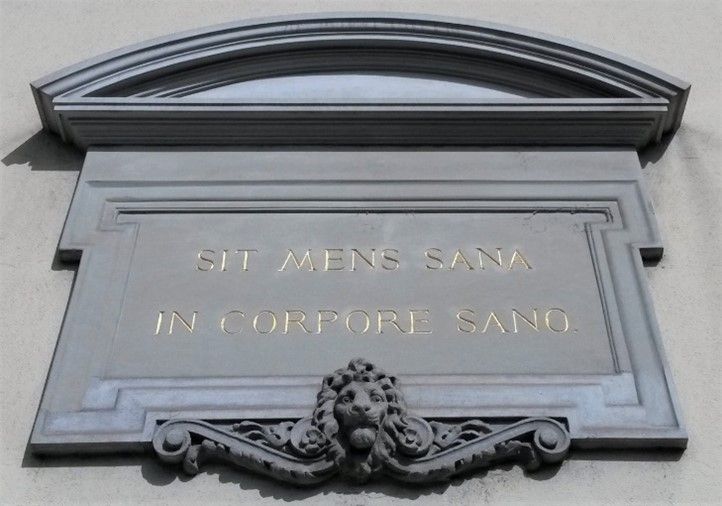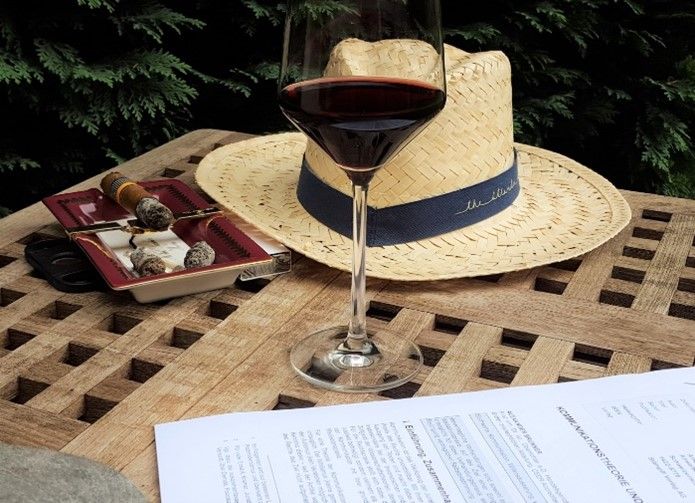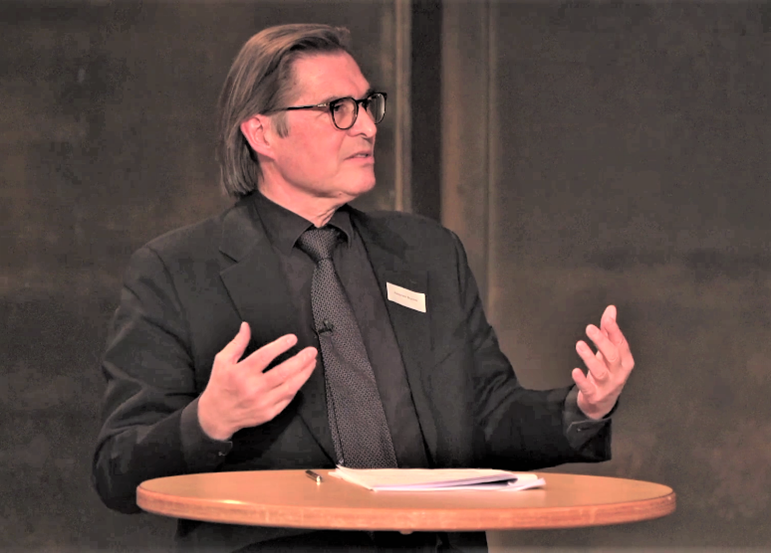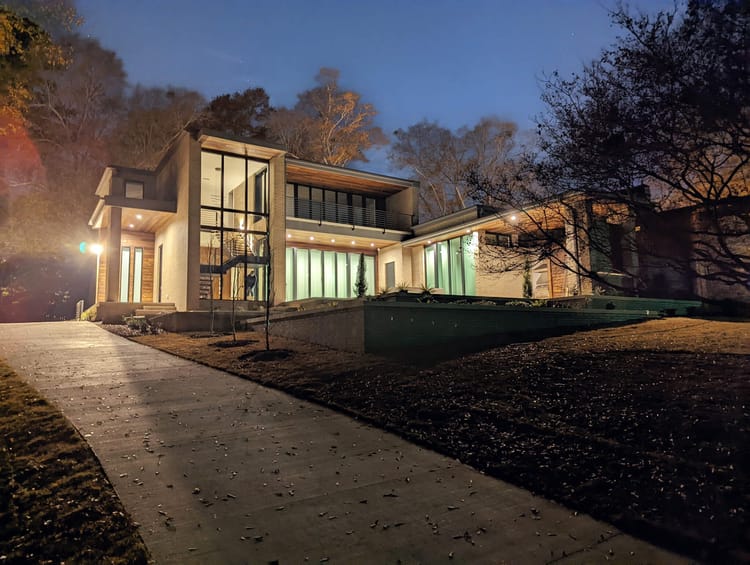The World of Work and the Meaning of Life (by Alexander Brunner)

On the last working day at the end of June 2019 and before the start of the renewal of the six-year term of the Zurich Supreme Court election, my long-standing esteemed colleague Johann Zürcher and I celebrated our farewell party in the restaurant “UniTurm” at the University.
After a creative time as Chief Judges, we immersed ourselves in another phase of life, beyond the world of work. I felt much too young to make statements like this: “Getting old is shit” (lawyer and songwriter Jakob Stickelberger), or “Why is life so short, damn it” (political philosopher Jean Ziegler). ... But maybe that will come.
Every day on my way to work, I passed the old sports hall opposite the Kunsthaus Museum where the sentence was written in golden letters: Sit mens sana in corpore sano. This is a maxim that I had adopted early on, and which obviously made the transformation into another world enjoyable.
If nothing changes for body and mind, saying goodbye to the world of work is not jarring. Since then, I have been considered a "Senior Chief Justice out of service" and not a "resigned Senior Chief Justice," since the Zurich Constitution does not recognize any age limit for magistrates at the Supreme Court and the Parliament has not contradicted my written legal opinion in any way.
But what are the pleasing new circumstances?
Travel? Yes, sure, but I undertook great adventures in almost all parts of the world already in my younger years. Now the visits to the beautiful cities of Europe are back accompanied by many memories.
Sport? Yes, sure. I once asked the former Secretary General Dr. Rudolf Zipkes, who was over a hundred years old, at a judicial event why he was always so lively and cheerful. His three-word answer: "Movement, movement, movement."
Even after my farewell, my own sports room is never empty. Every morning begins before the first coffee with three-quarters of an hour of training on the Olympic mat, with dumbbells, on the wall bars, on the multigym and the elliptical cross trainer, and moving to hard rhythms on the "fat facility" that our son (he is a music producer) has put in.

Dance? Yes, sure! If there is movement, then with synergies! But as a "68er" I first had to learn "Classic & Latin" in courses, which is advantageous not to do with your own partner. Marianne Kaiser and her phenomenal student Julia Stoll patiently taught me the basics, which also applies to my dance partner. I'm still working on it, especially with the complex processes.
In dance as an art of movement, both parts must not only know the rules but also comply with them to create unity from opposites. For me, dance has become a symbol of real life and it belongs to the lightness of being.
Cuisine? Yes, sure! But now exclusively as a connoisseur after my retirement from the working world, during which time I shared the kitchen with always fresh, but short menus.
Fortunately, my wife gave up her law office on Limmatquai in town almost at the same time and she now dedicates herself to an unimaginable five-star cuisine in the multicultural tradition of her grandmother (Austria-Hungary). I love her Viennese boiled beef and her Italian antipasti and homemade pasta, better than those from the "Cipriani" in Venice because she lets the dough slide through the machine ten times. But let's not go into the details here and well, ... I have the training!
Let us now leave the apparent superficialities of this short report and turn away from the slightly hedonistic style to the centerpiece: one's inner life after leaving the world of work. I was warned by many well-meaning people: "Be careful not to fall into a hole!" The problem being: I did not find it!
The meaning of life also encompasses the world of work but is not absorbed in it. Meaning in life is where you ask the big questions. This is youth. These are the questions that cannot be rejected or delegated, but usually seem to become obsolete with integration into the world of work. This appearance is a deception. It is the often-repressed questions:
- "Who am I?"
- "What is all this for?"
- "What is the meaning of life?"
For me, leaving the world of work was the space that made these questions real again. A real stroke of luck.
In the world of work, I had always hoped to find time to bring the texts I started almost fifty years ago to a conclusion. That was an illusion. The world of work was too demanding and too beautiful. It overtook the questions of my youth.
True, I was always accompanied by a slight hunch; but it could not be put into words and deepened. Now it's time for it, a glorious time. Because the questions have been given to two new perspectives: broad experience and a sharpened view.
In the meantime, I have renamed my diary with many thousands of pages, which is now called: "Quarry Texts". These texts will be – Thank you world of practice! – edited, supplemented, deleted, disassembled, criticized, and rewritten, in good weather in the garden.

The content of the texts is the search for the criteria of critique for the adoption of opinions, i.e., questions about the "individual-concrete identity of the person in a multicultural society," which inadmissibly narrows gender theory today (cf. my text in the Festschrift Freiheit und Zwang, Basel 2021, 127 ff.). Communication theory occupies a large part of my time and thus the eternal question of how understanding between people can be possible at all (cf. the preliminary short text, Anwaltsrevue 2021, 369 ff.).
Now there would be a lot to add, but space here is scarce. Only a few more clues from a retired: jurisprudence? No: Worry about the law! "Jurisprudence" is too reminiscent of the monologue of Goethe's "Faust" in the Gothic room, which degrades the law from the key to freedom to mere craftsmanship. The judiciary must safeguard our freedom, which is always threatened. A self-confident judiciary is needed!
Even though the questions of youth are now at my heart again in old age, many previous delicacies naturally remain. It is the contact with fellow lawyers (cf. ZZZ 2022, 133 ff.), the work in expert commissions (BBl 2021, 3048 ff.), and the founding of a consulting company (Zenon Consult, legal and strategy advice as well as dispute resolution).
At their invitation and request, I then support colleagues of the Faculty of Law at seminars (currently for the chairs of Atamer and Heinemann) and give lectures (cf. SZW 2022, 326 ff.). Work is currently underway on the third edition of the commentary on the Code of Civil Procedure (DIKE-Komm-ZPO) with 60 authors, especially since the revision of the law in Parliament has been completed. Peter Nobel and I have contributed to the fact that Switzerland can now also set up "Swiss International Commercial Courts" (joint tribune contribution, NZZ, 22.12.2021, p. 18).

I now wish my colleagues in office and all employees of the Supreme Court, and the Zurich judiciary continued joy and success in the world of work. I associate this with a concern within the meaning of Articles 1 and 2 of the Civil Code (rule and application of law and good faith).
It is the principles and the compass that judges can use as a guide. The formulation of these Articles by Eugen Huber comes from Aristotle (Nik. Eth., V.14). The doctrine is only to be observed if it has proven itself, contemporary opinions are not "proven doctrine" within the finding of justice and judicial decision-making by the judiciary (Art. 1 para. 3 CC).
The third state power has a great responsibility for society and the state. It is the social conscience and the guarantor of freedom.






Member discussion